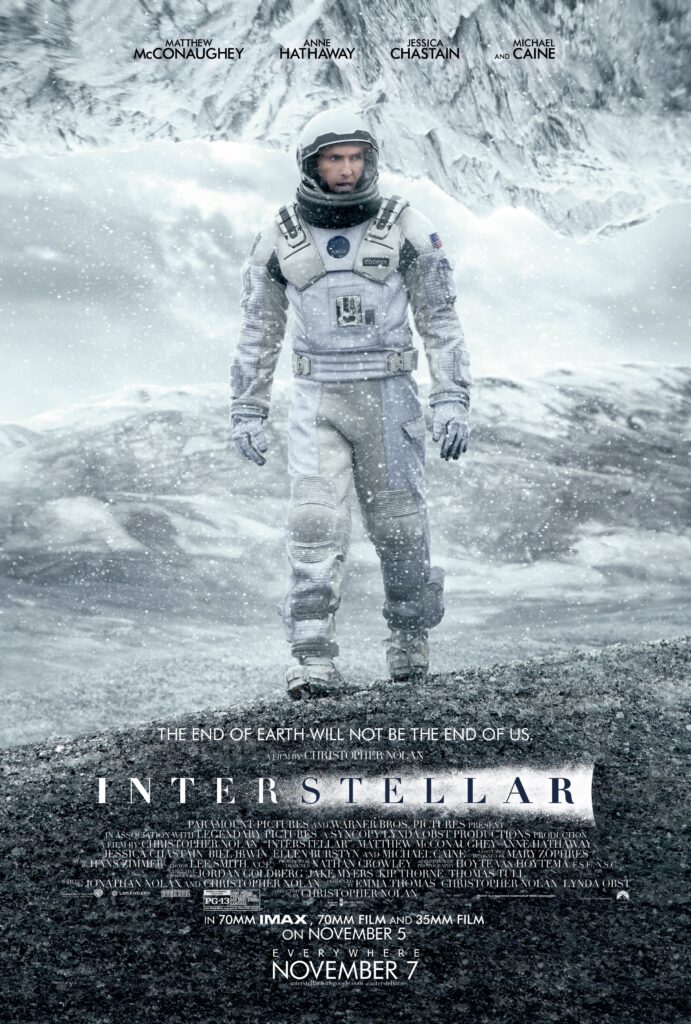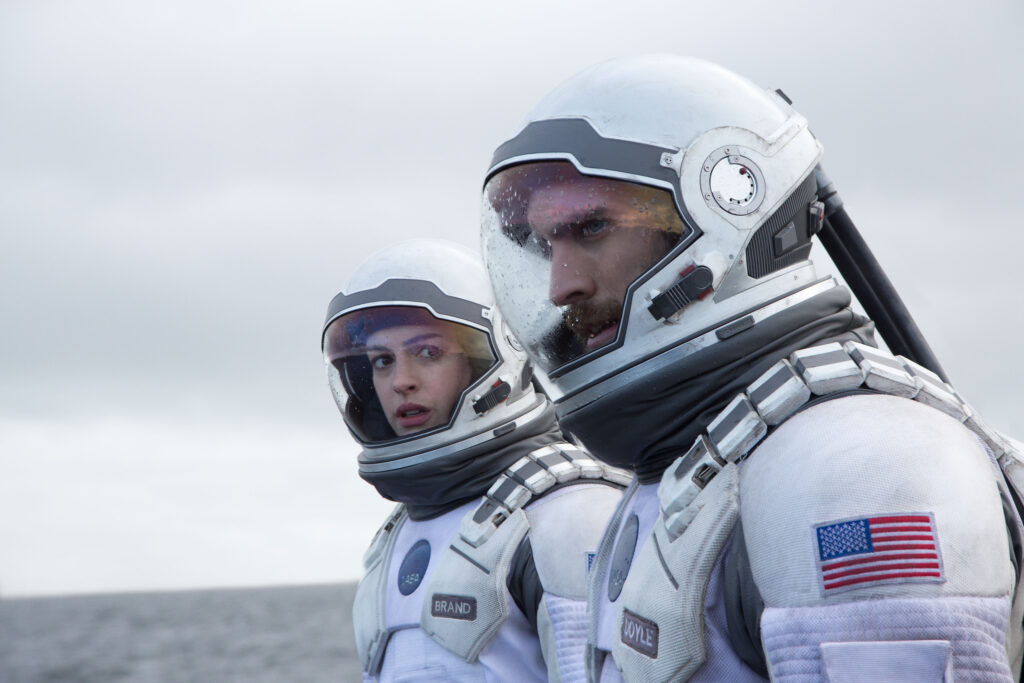Interstellar Christian review

In the vast expanse of cinema, few films capture the imagination and stir the soul quite like Christopher Nolan’s “Interstellar“. Set against a backdrop of a future Earth ravaged by environmental decay and crop blight, the film weaves together themes of sacrifice, love, and the indomitable human spirit. As a Christian viewer, delving into this narrative offers a profound journey through existential questions and moral quandaries.
A Tale of Sacrifice and Love
At its core, “Interstellar” is a story of sacrifice and love. We meet Cooper, a former NASA pilot turned farmer, who grapples with the moral dilemma of leaving his children behind to embark on a perilous mission through a wormhole in search of a new habitable planet. His journey echoes the sacrificial love portrayed in Christian teachings, where the greater good sometimes necessitates personal sacrifice. This resonates deeply with the Christian ethos of selflessness and putting others before oneself.
The bond between Cooper and his daughter, Murph, serves as an emotional anchor throughout the film. Murph’s unwavering faith in her father, coupled with her journey from childhood to adulthood as she strives to save humanity, reflects themes of hope and perseverance. As Christians, we recognize the parallels with biblical narratives of familial love, trust, and the enduring hope found in dire circumstances.
Ethical Dilemmas and Moral Reflections
“Interstellar” raises poignant ethical dilemmas that invite viewers, particularly those of faith, to introspect. The decision to pursue “Plan B” – using embryos to ensure the survival of the human race – prompts deep moral reflection. It challenges us to consider the sanctity of life, the responsibilities of stewardship over creation, and the ethical implications of scientific advancements.
Cooper’s agonizing choice to leave his family for the sake of mankind’s future mirrors the biblical concept of sacrificial love exemplified by Jesus Christ. His journey parallels the biblical narrative of Abraham, who was called to sacrifice his son Isaac as a test of faith and obedience. This narrative thread in “Interstellar” invites us to ponder the complexities of moral decision-making and the greater purposes that may lie beyond our immediate understanding.

Exploring Faith and Existence
The film’s exploration of faith extends beyond interpersonal relationships to encompass humanity’s place in the cosmos. Professor Brand’s secretive handling of the truth about Earth’s future and the mission’s true purpose invites viewers to reflect on trust, truth, and the implications of knowledge. In a world where faith and reason often seem at odds, “Interstellar” challenges us to reconcile scientific inquiry with spiritual understanding.
The cosmic journey through the wormhole and the exploration of planets orbiting a black hole evoke awe and wonder, reminiscent of the psalmist’s words celebrating the grandeur of creation in Psalm 19. As Christians, we are reminded of God’s sovereignty over the universe and the marvels of His creation, inviting us to contemplate the mysteries of existence and our role as stewards of Earth.
Hope Amidst Desolation
Amidst the desolation of a dying Earth, “Interstellar” offers a message of hope. The film suggests that even in humanity’s darkest hours, there is potential for redemption and renewal. This echoes the Christian narrative of hope found in Christ’s resurrection, where despair is transformed into hope and death into life.
The character of Amelia Brand embodies this hope as she clings to the belief that humanity can find a new home among the stars. Her unwavering faith in the possibility of life beyond Earth mirrors the Christian hope in a future glory and the promise of eternal life. It serves as a poignant reminder that, despite our earthly trials, there is a greater purpose and a divine plan unfolding beyond our comprehension.
Cinematic Grandeur and Spiritual Reflection
Visually and narratively, “Interstellar” captivates with its cinematic grandeur and emotional depth. The sweeping vistas of distant planets, the haunting soundtrack by Hans Zimmer, and the existential journey of its characters combine to create an immersive experience that resonates on both intellectual and emotional levels.
As Christians, watching “Interstellar” invites us to engage critically with themes of creation, redemption, and the human condition. It challenges us to consider our ethical responsibilities in a world facing environmental challenges and technological advancements. Moreover, it prompts us to reflect on the intersection of faith and reason, where scientific exploration and spiritual understanding converge in the quest for truth and meaning.
Conclusion: Reflecting on “Interstellar”
In conclusion, “Interstellar” is more than a science fiction epic; it is a profound exploration of humanity’s quest for survival, meaning, and transcendence. For its thematic depth, emotional resonance, and philosophical complexity, I would rate “Interstellar” 9 out of 10. It is a film that not only entertains but also inspires contemplation and introspection, leaving a lasting impression on viewers who seek to unravel its mysteries and ponder its profound messages. As Christians, we find in “Interstellar” a narrative that resonates with our faith’s teachings on love, sacrifice, and the enduring hope found in divine providence.





